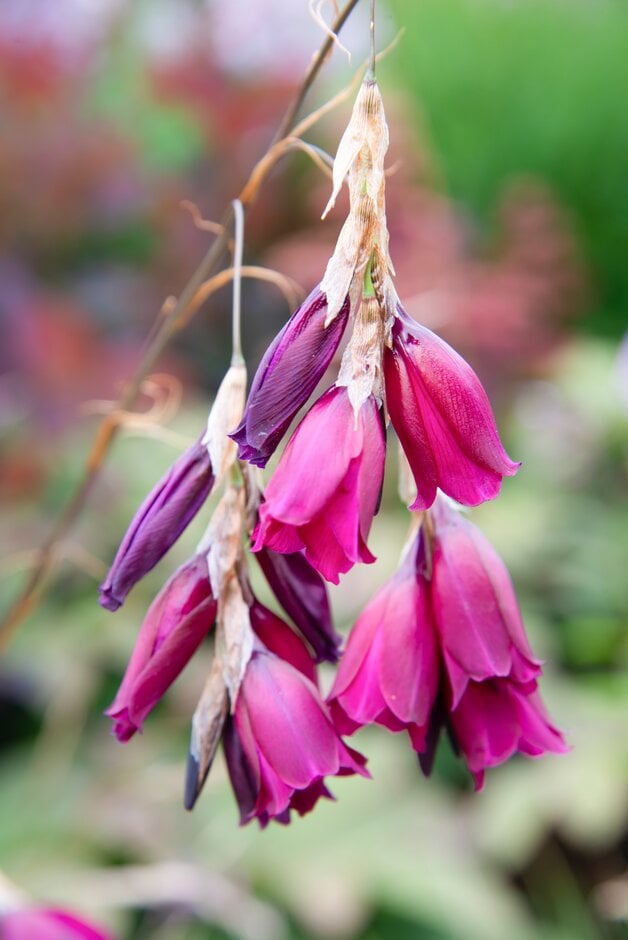Dierama pulcherrimum 'Merlin'
angel's fishing rod 'Merlin'
A slow-growing evergreen perennial, to 1.2m high in flower, with fine clumps of narrow, grass-like leaves. From mid to late summer, produces slender, arching stems bearing a succession of pendent, tubular to bell-shaped, dark reddish purple flowers with flared tips

Buy this plant
Size
Ultimate height
1–1.5 metresTime to ultimate height
2–5 yearsUltimate spread
0.1–0.5 metresGrowing conditions
Moisture
Moist but well–drained, Well–drainedpH
Acid, Alkaline, NeutralColour & scent
| Stem | Flower | Foliage | Fruit | |
| Spring | Green | |||
|---|---|---|---|---|
| Summer | Purple | Green | ||
| Autumn | Green | |||
| Winter | Green |
Position
- Full sun
Aspect
South–facing
Exposure
Sheltered Hardiness
H4Botanical details
- Family
- Iridaceae
- Native to GB / Ireland
- No
- Foliage
- Evergreen
- Habit
- Tufted, Clump forming
- Genus
Dierama are evergreen, clump-forming cormous perennials with long, narrow leaves and slender arching stems bearing nodding, bell-shaped flowers in summer
- Name status
Accepted
How to grow
Cultivation
Grow in humus-rich, well drained soil in an open, sunny spot; these plants like moisture during the growing season but dislike winter wet. Add a compost mulch in spring. May benefit from winter protection in colder areas. See dierama cultivation for more detailed advice
Propagation
Propagate by division of mature clumps, carefully separating corms in spring. Young plants and divisions can be slow to establish
Suggested planting locations and garden types
- City and courtyard gardens
- Coastal
- Cottage and informal garden
- Gravel garden
- Prairie planting
- Flower borders and beds
Pruning
Tidy any winter-damaged foliage by cutting to the base in spring
Pests
Generally pest-free
Diseases
Generally disease-free
Love gardening
Sign up to receive regular gardening tips, inspiration, offers and more
View our Privacy Policy
Get involved
The Royal Horticultural Society is the UK’s leading gardening charity. We aim to enrich everyone’s life through plants, and make the UK a greener and more beautiful place.